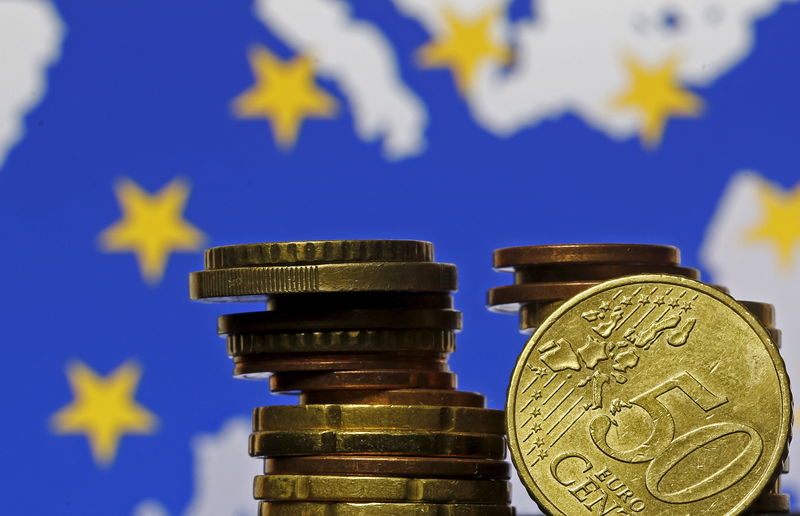Investing.com - The euro remained weaker against the other major currencies on Tuesday after Greece requested a new two-year bailout program, just hours ahead of a deadline for what looked to be an almost certain debt default by Athens.
EUR/USD was at 1.1183, off 0.46% for the day, after falling as low as 1.0955 earlier.
The Greek government requested a new bailout from the European Stability Mechanism to cover the country’s financial need for the next two years, which would run alongside debt restructuring.
In a statement the government said it will continue negotiations seeking a “viable agreement” within the euro area.
It was unclear what the response from the country’s creditors would be.
Greece’s existing bailout program officially expires at midnight and €1.6 billion loan repayment to the International Monetary Fund is due at the same time.
Without a rescue package in place Athens will almost certainly fall into arrears. Earlier in the day Greek Finance Minister Yanis Varoufakis said Athens would not make the deadline for the repayment.
A default by Greece would add to fears over the country’s solvency and fuel doubts over the condition of Greek banks and the collateral they use for European Central Bank loans.
Greece shut down its banking system on Monday, with lenders ordered to stay closed for six days, following a decision by the ECB not to extend a lifeline of emergency funding.
Greece broke off negotiations with creditors on Saturday and in a surprise move Prime Minister Alexis Tsipras called for a snap referendum to be held on July 5 on whether to accept the terms proposed by lenders for extending the country’s bailout.
The euro was lower against the yen and sterling, with EUR/JPY at 136.69, off early lows of 135.89 and EUR/GBP at 0.7092 from 0.7083 earlier.
The single currency was slightly higher against the Swiss franc, with EUR/CHF at 1.0402 after the Swiss National Bank intervened in markets on Monday to weaken the franc.
The dollar was lower against the safe haven yen, with USD/JPY sliding 0.22% to 122.26, falling back towards Monday’s one-month lows of 122.10.
In the U.S. data on Tuesday showed that consumer confidence improved in June, boosted by the strengthening labor market.
The Conference Board said its index of consumer sentiment rose to 101.4 this month from a downwardly revised 94.6 in May. Economists had forecast a more modest increase to 97.3.
The U.S. dollar index, which measures the greenback’s strength against a trade-weighted basket of six major currencies, was last at 95.42.
